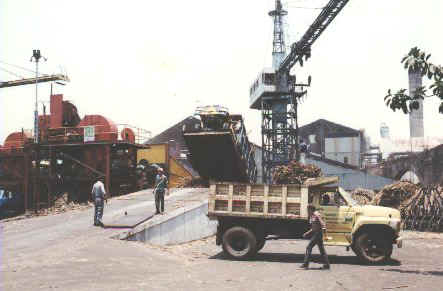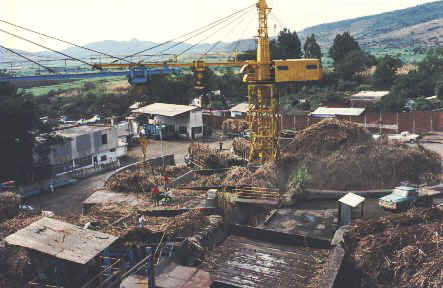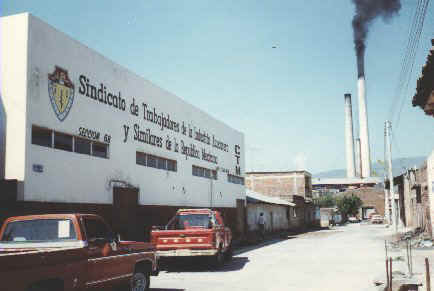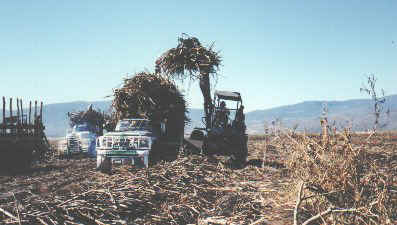 The San Sebastian sugar mill.
The San Sebastian sugar mill. The San Sebastian sugar mill.
The San Sebastian sugar mill.
The sugar industry was one of the problem areas of Mexico's agrarian reform programme. The case of Guaracha was unusual because the peasants theoretically secured control over the mill in addition to receiving the land on which the cane was grown. In most cases, the mills (ingenios) remained in private hands, and the ejidatarios were obliged to grow cane. Cárdenas believed that it was important to preserve Mexico's large scale agro-industries, and this is why he preferred systems of collective cultivation and insisted that even the Guaracha mill cooperative remained under technocratic management. In most cases, major conflicts developed between the mills and the peasant growers, many of whom wished to be free to grow other crops.
In the face of persistent conflict between cane growers and mill workers and private mill owners, and the political threat posed by efforts to organize independent unions in the sector, the government finally took the country's sugar mills under state control in the 1970s. The statized industry was beset by problems of corruption and inefficiency, although the official unions did succeed in securing important material benefits for ejidatarios and the permanent workers in the mills, such as subisidized housing and medical insurance. Nothing much was done for the field workers, however, by the official unions, and their leaders frequently abused their positions, remained in power for extended periods of time, and entered cosy relationships with the mill management.
 The Santa Clara mill.
The Santa Clara mill.
The process of re-privatizing the mills began under the government of Miguel de la Madrid (1982-1988). Some of the most efficient were bought by soft drink companies such as PepsiCo.The Salinas government continued the process, disposing of some of the less profitable mills on terms that remain somewhat obscure. The mills of Santa Clara and San Sebastian were not sold until 1990. Privatization led to the rapid closure of some mills, including Puruarán in Michoacán, with devastating consequences for local communities. But those that remained open found that Salinas and his successor pursued policies that made stabilization of the industry impossible, as we will see.
Video Clip - click on Quicktime logo to play
Video clip of cane loading machine and adult and teenage field hands.

The mill workers' union office, Santa Clara.

Loading cut cane on trucks with a specialized machine.